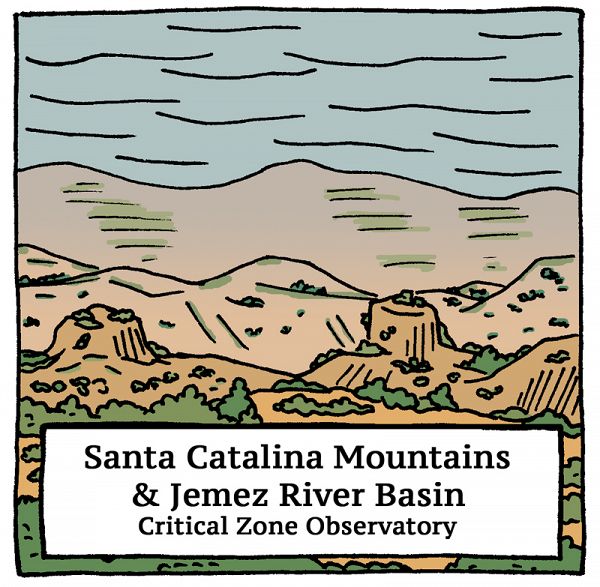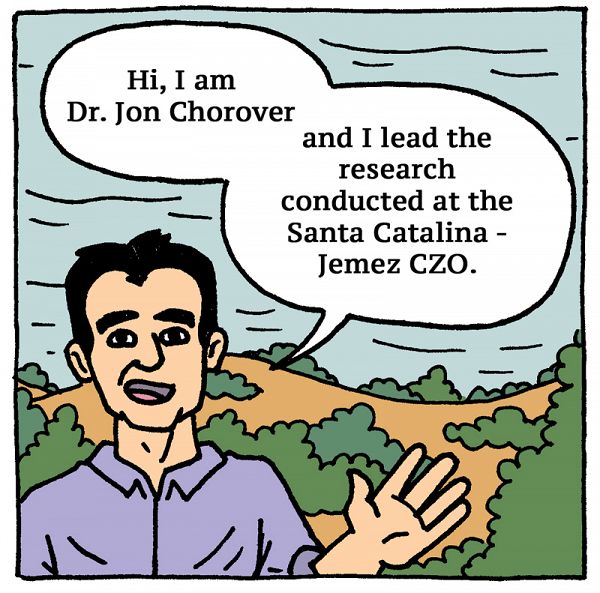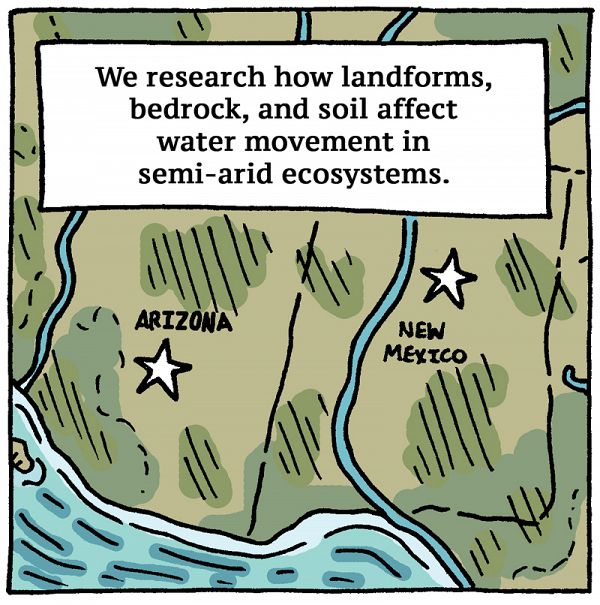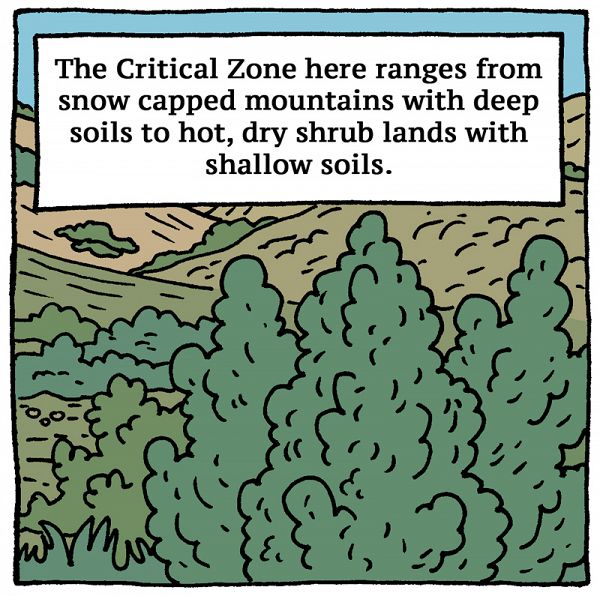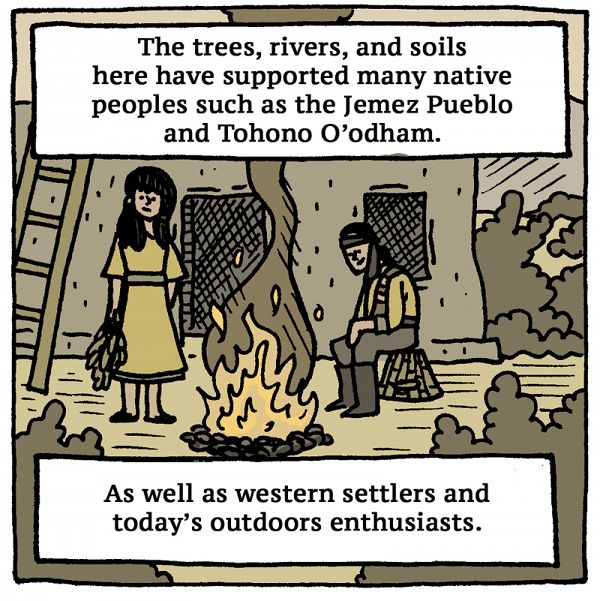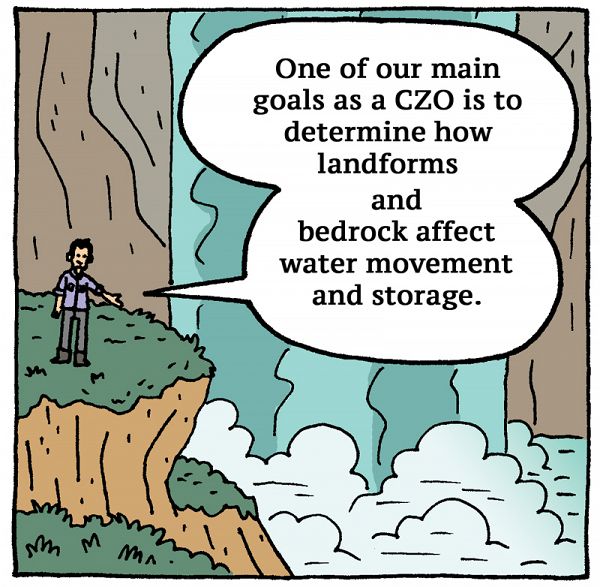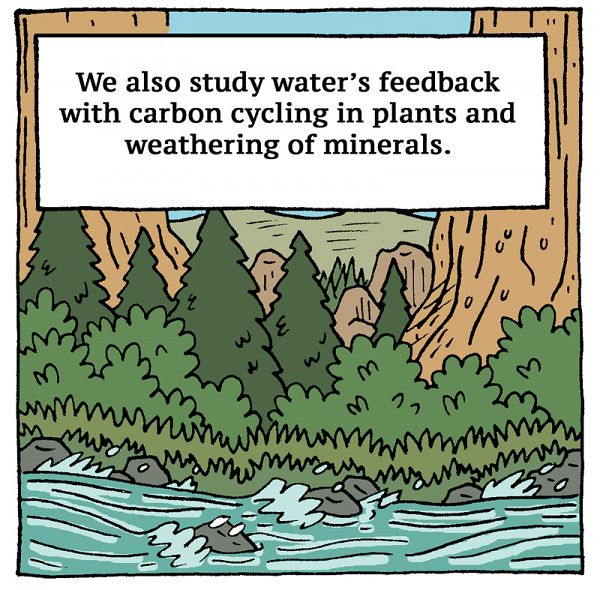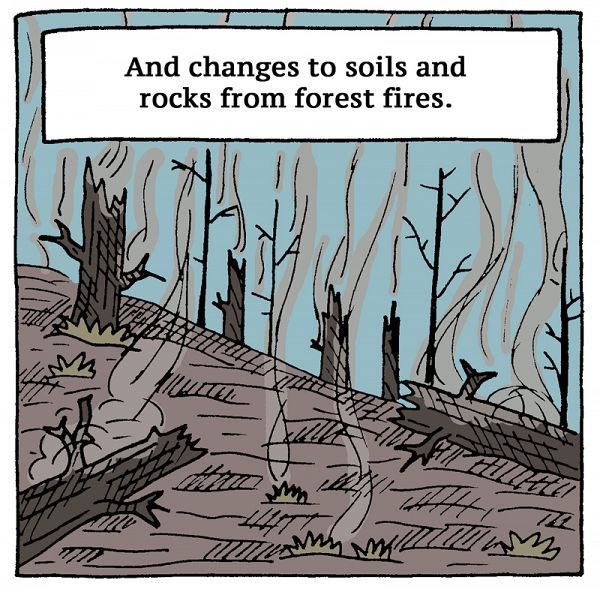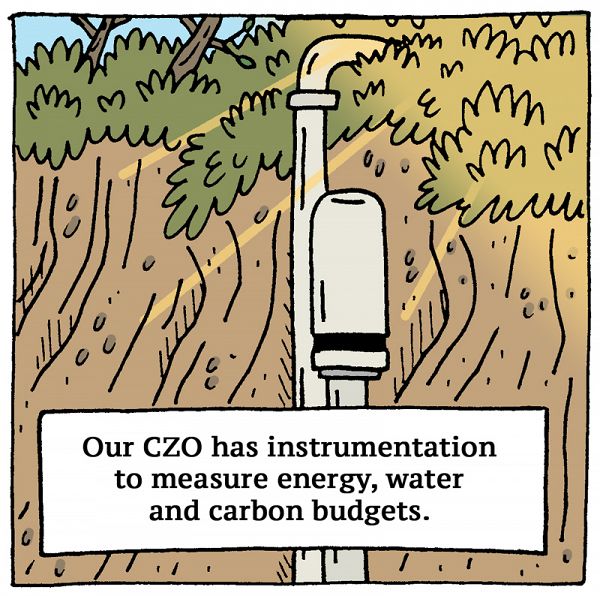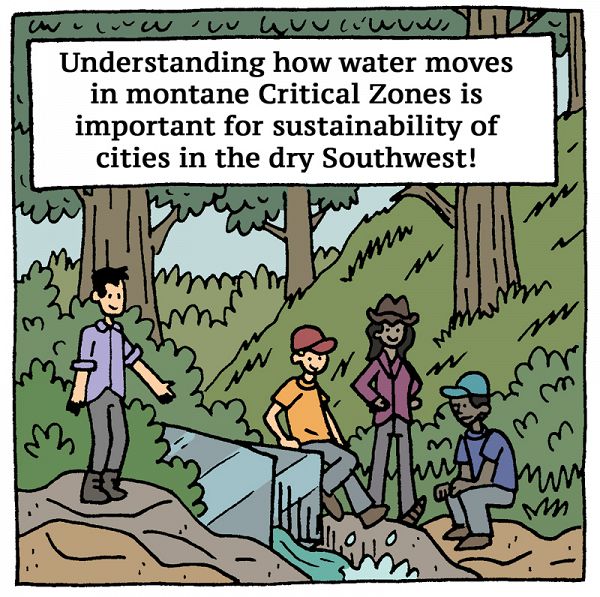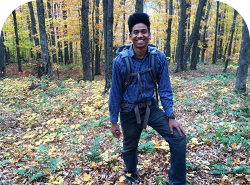What is the Santa Catalina-Jemez River Basin Critical Zone Observatory?
Justin Richardson in Adventures in the Critical Zone

Nov 12, 2016
An illlustrated introduction to the Santa Catalina-Jemez River Basin Critical Zone Observatory!
By Justin Richardson and Jon Chorover.
Illustrated by Mathew New
Panel 1. A view of shrubland and mountains found in the Santa Catalina Mountains & Jemez River Basin Critical Zone Observatory (CJCZO).
Panel 2. Dr. Jon Chorover waves and says, “Hi, I am Dr. Jon Chorover and I lead the research conducted at the CJCZO.”
Panel 3. A map shows the general locations of CJCZO sites in Arizona and New Mexico. Researchers at these locations study how landforms, bedrock, and soil affect water movement in semi-arid ecosystems.
Panel 4. The CJCZO covers snow capped mountains with deep soils to hot, dry shrub lands with shallow soils.
Panel 5. Native peoples are around a bonfire. The trees, rivers, and soils here have supported many native peoples such as the Jemez Pueblo and Tohono O’odham; as well as, western settles and today’s outdoors enthusiasts.
Panel 6. Dr. Chorover stands by a waterfall and explains the CZO’s main goal is to determine how landforms and bedrock affect water movement and storage.
Panel 7. A stream, surrounded by vegetation, flows through a ravine. The CZO also studies water’s feedback with carbon cycling in plants and weathering of minerals.
Panel 8. The CZO also studies changes to soils and rocks from forest fires shown with a burnt once-vegetated landscape.
Panel 9. Instrumentation in the watershed measures energy, water and carbon budgets.
Panel 10. A group of CZ researchers surround a stream weir. Understanding how water moves in montane CZs is important for sustainability of cities in the dry Southwest.
Files
What is the Santa Catalina-Jemez River Basin Critical Zone Observatory?
(2 MB pdf)
Printable 2-page version of this comic.

Justin B. Richardson
CZO INVESTIGATOR, STAFF. National Office outreach officer, Former CZO Post-Doctoral Fellow. Specialty: Soil biogeochemistry of plant-essential and toxic metals.
Outreach / Education Research EDUCATION/OUTREACH General Public K-12 Education
COMMENT ON "Adventures in the Critical Zone"
All comments are moderated. If you want to comment without logging in, select either the "Start/Join the discussion" box or a "Reply" link, then "Name", and finally, "I'd rather post as a guest" checkbox.
ABOUT THIS BLOG
Justin Richardson and his guests answer questions about the Critical Zone, synthesize CZ research, and meet folks working at the CZ observatories
General Disclaimer: Any opinions, findings, conclusions or recommendations presented in the above blog post are only those of the blog author and do not necessarily reflect the views of the U.S. CZO National Program or the National Science Foundation. For official information about NSF, visit www.nsf.gov.
Explore Further
